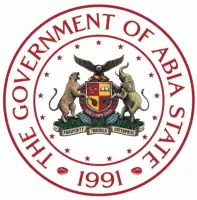The Lagos State Government has reached a significant milestone in child nutrition, achieving an exclusive breastfeeding rate of 57.4 percent, which surpasses the global target of 50 percent. This achievement was announced by Dr. Kemi Ogunyemi, Special Adviser to the Governor on Health, during a press briefing marking the 2025 World Breastfeeding Week.
Despite this progress, Dr. Ogunyemi expressed concern over the state's low rate of early breastfeeding initiation, currently at just 14 percent. She warned that delaying breastfeeding within the first hour after birth poses significant risks to newborn health and development.
"When babies miss out on colostrum, which is rich in antibodies, their immunity is compromised from the start," Dr. Ogunyemi explained. She attributed the low figures to poor service delivery, cultural misconceptions, and continued use of pre-lacteal feeds such as glucose water and infant formula.
Creating Sustainable Support Systems
This year's World Breastfeeding Week theme, "Prioritise Breastfeeding: Create Sustainable Support Systems," highlights the importance of establishing long-term institutional, community, and workplace structures to support breastfeeding mothers, particularly those in employment.
"We are focused not just on promoting breastfeeding, but ensuring that mothers have the social, institutional, and workplace support they need," Dr. Ogunyemi stated, emphasizing that breastfeeding is not merely a maternal health issue but also a public health, economic, and developmental concern requiring collective action.
To support working families, Lagos State has implemented a progressive policy of six-month paid maternity leave and two-week paternity leave for the first two deliveries across all public institutions. "This forward-thinking policy gives parents the time needed to prioritise exclusive breastfeeding during the critical first six months. We encourage private sector employers to adopt the same," she added.
Benefits Beyond Nutrition
Dr. Folashade Oludara, Director of Family Health and Nutrition at the State Ministry of Health, emphasized that breastfeeding remains the most affordable, effective, and accessible form of nutrition for infants, particularly during challenging economic times.
"Now more than ever, mothers should prioritise exclusive breastfeeding. It's free, readily available, and has no negative side effects," she said. "Contrary to popular myths, it does not cause sagging breasts."
Dr. Oludara also highlighted the broader health benefits of breastfeeding, including a reduced risk of breast cancer for mothers, and urged the media to combat misinformation by promoting fact-based content.
Private Sector Involvement Crucial
Dr. Lola Alonge, founder of the Child Health Advocacy Initiative, commended Lagos for pioneering paid maternity and paternity leave in Nigeria, noting that only a few states have followed this example more than a decade later.
"Lagos set the standard, and it is a commendable achievement. But to reach our breastfeeding goals, the private sector must also play its part," she said, calling on private organizations to align with public policies.
Dr. Alonge emphasized that most women work in the private sector, and the absence of similar maternity support could undermine national breastfeeding targets. "Until private employers fully embrace six-month maternity leave, our efforts to improve child nutrition and maternal well-being will remain incomplete," she concluded.
The state has also scaled up antenatal education and counseling across its health facilities to better prepare expectant mothers for optimal breastfeeding practices and infant care.
Stay updated with the latest health news and developments by following BenriNews on our social media platforms: Facebook, Twitter, LinkedIn, WhatsApp, and Telegram.













